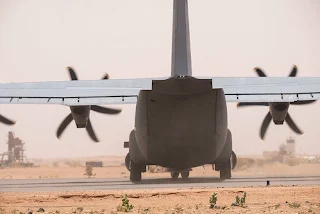The period from 1978 to 1992 in Mauritania was characterized by the dominance of a military junta that wielded significant power in the nation's governance.
A military junta refers to a collective body of military leaders who assume control over a nation's governance by seizing power from the established government. This form of rule stands in contrast to a military dictatorship, where a single military officer holds undisputed authority. A notable instance of a military junta can be observed in Mauritania's history during the period spanning from July 1978 to April 1992.
During this time, a group of high-ranking military officials collectively governs the nation, shaping its political landscape and policies. Currently, there are at least six African countries under military leadership. These countries include The Republic of Chad, The Republic of Niger, Sudan, Burkina Faso, Guinea and Mali.
Mauritania, situated in North West Africa is Africa's eleventh-largest country; it has a history that has been marred by recurring bouts of military junta's and political instability. This land, characterized by its vast desert landscapes and diverse ethnic communities, has often grappled with governance challenges and shifting political landscapes. Over the decades, the nation has experienced shifts in leadership, changes in government structures, and periods of social unrest.
These historical patterns of political instability have not only influenced the nation's domestic affairs but have also played a role in shaping its relations with the international community. During the late 1980s and early 1990s, the country grappled with ethnic tensions and government repression.
Mauritania's Complex Dynamics of Political Military Junta
From July 1978 to April 1992, the West African nation of Mauritania found itself under the control of a military junta. During this period, the ruling group consisted primarily of military officers who held key government positions, including ministerial portfolios and roles within the defense establishment. This article delves into this significant phase of Mauritanian history, exploring the dynamics of military rule, constitutional changes, and the eventual return to civilian governance.
In July 1978, Mauritania witnessed a dramatic shift in its political landscape as a military junta took control of the country. This junta was composed of high-ranking military officers who held influential ministerial posts and occupied vital positions within the nation's defense establishment. At the helm of this committee was the chairman, who also served as the chief of state.
One of the notable developments during this era was the approval of a new constitution via a national referendum held in July 1991. This constitution marked an attempt to solidify the junta's rule and establish a framework for governance. However, as early as 1992, the government faced a series of critical challenges that would ultimately alter the course of Mauritanian politics.
Internal strife in the form of ethnic tensions posed a significant threat to the stability of the Mauritanian government. These tensions led to conflicts within the nation and threatened to undermine the junta's authority. A crucial turning point came in the form of international isolation, as Mauritania experienced a cutoff of military and development assistance from abroad.
Faced with these mounting challenges, the Mauritanian government made a pivotal decision in early 1992. In a bid to address internal crises and regain international support, the country abandoned military rule and disbanded the military committee that had been in power. Maaouya Ould Sid’Ahmed Taya, a prominent figure within the junta, remained at the helm of the government but as a civilian leader.
The period from 1978 to 1992 in Mauritania was characterized by the dominance of a military junta that wielded significant power in the nation's governance. This era witnessed the approval of a new constitution and, ultimately, a shift back to civilian rule due to internal strife and international pressures. Understanding this phase of Mauritanian history provides valuable insights into the region's complex dynamics of political transitions.














